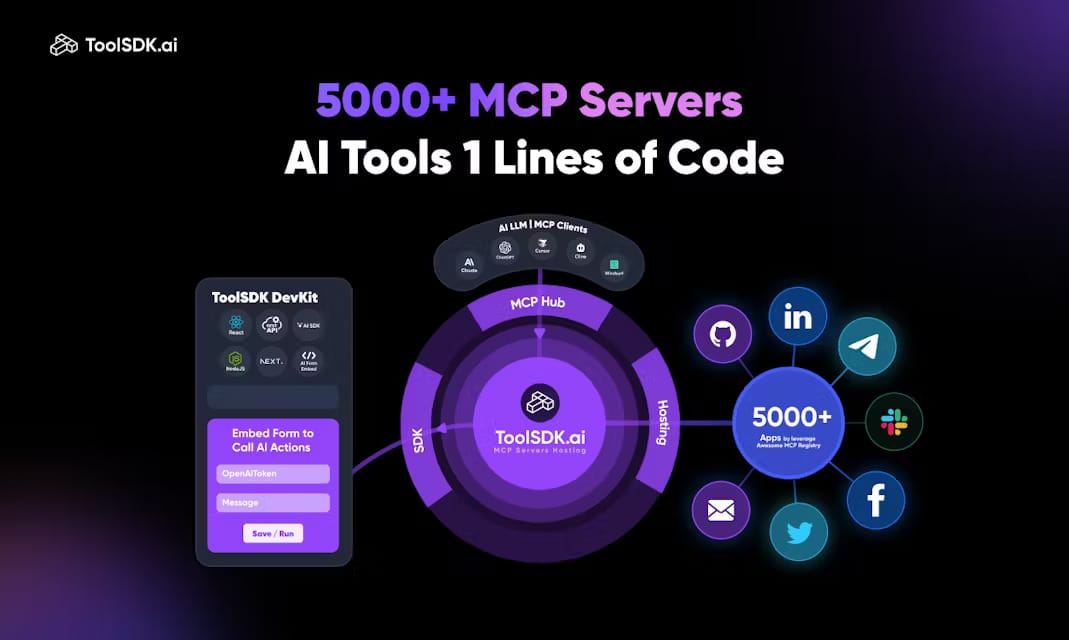Good morning. It’s Friday, August 1st.
On this day in tech history: In 2011, Google researchers quietly open-sourced DistBelief, their pioneering deep learning framework built for large-scale distributed neural networks. DistBelief directly inspired TensorFlow years later and laid groundwork for scaling deep nets across massive data centers, an underrated moment that shifted AI from academic labs into internet infrastructure.
In today’s email:
Meta Detects First "Self-Improving AI"
DeepMind AI compresses satellite data
Higgsfield launches free, no-prompt AI video model
Manus “Wide Research”
5 New AI Tools
Latest AI Research Papers
You read. We listen. Let us know what you think by replying to this email.
In partnership with XerpaAI
Skyrocket Your Growth with XerpaAI’s AI Revolution
XerpaAI, the world’s first AI Growth Agent (AGA), empowers businesses to scale rapidly with three standout features:
AI-Powered Content Creation: Craft targeted, high-quality content in minutes using advanced AI, streamlining marketing efforts and boosting engagement.
Influencer-Driven Distribution: Leverage a vast network of KOLs, KOCs, and community leaders for precise, conversion-focused campaign distribution.
Real-Time Data Feedback: Utilize comprehensive analytics to refine strategies and drive product iterations, ensuring agility and measurable results. These features deliver up to 3x higher conversion rates and 70% lower costs, replacing fragmented marketing with a unified, outcome-driven system.
Funding and Expansion
On July 9, 2025, XerpaAI raised $6M in seed funding from UFLY Capital, fueling innovation and global expansion across Silicon Valley, Tokyo, and Singapore. This investment cements XerpaAI’s role as a “Sherpa guide” for AI-driven growth. Web3 and Beyond. XerpaAI powers your projects and businesses, automating user acquisition to retention. Targeting a $600B–$1T market, it currently serves 80% blockchain and 20% AI startups, with plans for 2026 sales and compliance growth. Subscribe at http://xerpaai.com
Thank you for supporting our sponsors!

Today’s trending AI news stories
Meta detects first self-improving AI, bets $72B on “personal superintelligence”
Meta has quietly reported early signs of self-improvement in its AI systems - a step where models refine performance without direct human tuning. CEO Mark Zuckerberg called the progress “slow but undeniable,” framing it as a precursor to superintelligence.
Unlike competitors focused on automating jobs, Meta envisions “personal superintelligence” as an AI that augments creativity and decision-making, integrated deeply into daily life like AR glasses. Meta is betting on personal superintelligence that is rooted in user empowerment, not automation, and models that learn to improve themselves.
To bring this vision to scale, Meta plans to boost AI infrastructure spending to $66–72 billion in 2025. Projects include Prometheus in Ohio (targeting 1 gigawatt) and Hyperion in Louisiana, which may reach 5 gigawatts.
However, Meta will no longer open source its most advanced AI, citing “novel safety concerns,” and pausing work on its open Behemoth model to focus on a closed successor. While the company still commits to open-sourcing core infrastructure, it will keep frontier models under tighter control.
The news coincided with Meta’s strong Q2 results: revenue rose 22% to $47.5 billion, driven by AI-enhanced ad targeting; daily active users climbed to 3.48 billion; and net income surged to $18.3 billion, despite a $4.5 billion Reality Labs loss. Read more.
DeepMind AI compresses satellite data 16× to map Earth with 10-meter precision
Google DeepMind has launched AlphaEarth Foundations, an AI system that maps Earth’s land and coastal regions with 23.9% higher accuracy while using 16× less storage than previous approaches. Instead of storing raw satellite images, it creates “embedding fields”: compact digital summaries at 10-meter resolution that keep detail intact. The model integrates optical, radar, and climate data to overcome gaps from cloud cover, and uniquely supports continuous time mapping, allowing users to interpolate missing periods or track slow environmental changes.

Diagram showing how AlphaEarth Foundations works, taking non-uniformly sampled frames from a video sequence to index any position in time. This helps the model create a continuous view of the location, while explaining numerous measurements. | Image: Google DeepMind
Delivered via Google Earth Engine, AlphaEarth Foundations lowers costs and makes high-resolution planetary intelligence available for conservation, supply chain monitoring, and urban planning, without expensive ground surveys. Over 50 organizations, including Brazil’s MapBiomas and the Global Ecosystems Atlas, have tested it to track deforestation and map uncharted ecosystems. Read more.
Higgsfield launches free, no-prompt AI video model with $20K contest
Higgsfield AI just dropped MiniMax Hailuo: an AI video model that turns a single image into slick, four-second clips - no prompts needed. With 7,000+ new presets and unlimited free generations, anyone can create cinematic, TikTok-ready micro-films by simply clicking. Built to keep motion fluid and style consistent, Hailuo goes beyond remixing stock footage: it crafts every frame from scratch.
To hype the launch, Higgsfield is running a $20K contest. Read more.
Manus takes on Deep Research tools with Wide Research powered by 100+ parallel AI agents
Chinese AI startup Manus has introduced Wide Research, an experimental system that spins up over 100 parallel AI agents to tackle a single large-scale task. Unlike rival “Deep Research” tools from OpenAI and Google that run sequential, in-depth queries, Manus’s approach uses fully featured agents running concurrently on dedicated virtual machines, dramatically accelerating analysis and creative output.
In demos, Wide Research compared 100 sneakers by design and pricing in minutes, and generated dozens of poster designs across distinct visual styles. Built atop Anthropic Claude and Alibaba Qwen models, the system’s agent-to-agent communication architecture reportedly scales compute power up to 100x without manual setup. Wide Research launches first for Manus Pro users ($199/month), then rolls out to Plus and Basic tiers.
While promising speed and breadth, Manus hasn’t yet provided benchmarks proving accuracy or cost benefits versus single-agent systems, leaving questions around coordination complexity and practical gains. Read more.


5 new AI-powered tools from around the web

arXiv is a free online library where researchers share pre-publication papers.
📄 HunyuanWorld 1.0: Generating Immersive, Explorable, and Interactive 3D Worlds from Words or Pixels


Thank you for reading today’s edition.

Your feedback is valuable. Respond to this email and tell us how you think we could add more value to this newsletter.
Interested in reaching smart readers like you? To become an AI Breakfast sponsor, reply to this email or DM us on 𝕏!







